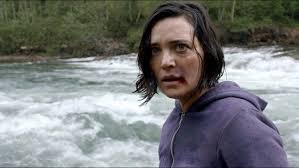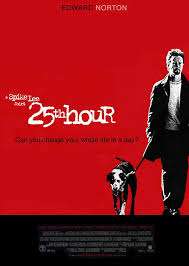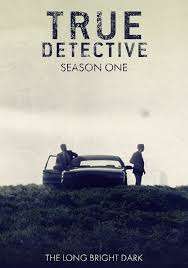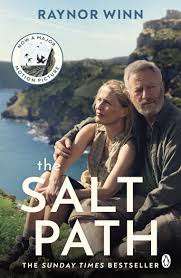In 2020, amidst a world grappling with a pandemic and increasing isolation, the film Alone struck a deep emotional chord with audiences. Directed by John Hyams, Alone is a taut, minimalistic survival thriller that centers on a lone woman’s struggle to survive after being kidnapped by a mysterious stranger. While the premise may sound familiar, what sets Alone apart is its lean storytelling, raw tension, and powerful performance by lead actress Jules Willcox.
Plot Summary
Alone follows the story of Jessica, a woman reeling from personal grief. The film opens with Jessica packing up her belongings and moving out of her home, clearly weighed down by emotional baggage. As she embarks on a road trip through the Pacific Northwest, the vast, foggy forests become more than just a backdrop — they evolve into a menacing character in their own right.
Early in her journey, Jessica notices a man in a dark SUV acting suspiciously, tailing her and creating a sense of unease. This stranger — played chillingly by Marc Menchaca — soon escalates his behavior, ultimately abducting Jessica and locking her in a basement. But Jessica is not just a victim. Through wit, determination, and physical strength, she escapes her captor and flees into the surrounding wilderness, sparking a tense game of cat and mouse.

The majority of the film follows Jessica’s fight to survive in the dense forest while being pursued by her kidnapper. With minimal dialogue, the film relies heavily on physical acting, cinematography, and pacing to maintain suspense. It’s a terrifying and yet strangely empowering tale of one woman’s resilience.
Characters and Performances
Jules Willcox delivers a standout performance as Jessica. Her portrayal is understated yet emotionally rich, capturing the fear, pain, and gradual transformation of a woman pushed to her limits. What makes Jessica such a compelling protagonist is her relatability — she’s not portrayed as a superhero or action star, but rather as an ordinary person forced into an extraordinary situation.

Marc Menchaca’s performance as the unnamed villain is equally compelling. He exudes a quiet menace that is far more disturbing than over-the-top villainy. His character is not a caricature of evil but instead disturbingly human, which makes his actions all the more horrifying. His calm demeanor, paired with bursts of violence and manipulation, create an unsettling presence throughout the film.
Despite having a small cast, Alone thrives on the strength of its two leads. Their dynamic — predator and prey — carries the story forward, creating relentless tension from beginning to end.
Themes and Symbolism
At its core, Alone is a film about survival, trauma, and reclaiming control. Jessica’s journey mirrors the inner battles many face after experiencing trauma or loss. In the early scenes, it’s hinted that she’s grieving her husband’s death, and this emotional burden shapes her decisions. Her road trip symbolizes escape, but it soon turns into a test of strength and self-discovery.
The wilderness is a powerful metaphor throughout the film. Isolated and dangerous, the forest represents the unknown — both external and internal. Jessica’s struggle to navigate the terrain while evading her captor symbolizes her confrontation with grief, fear, and vulnerability. By learning to adapt and fight back, she begins to reclaim not just her physical freedom, but her emotional agency.
The villain’s character, while never fully explained, embodies a different kind of threat: control and manipulation. His calm voice and false assurances are tactics to dominate Jessica psychologically. Yet as the film progresses, Jessica resists this control, becoming stronger, more focused, and ultimately fearless. Her survival is not just a physical triumph but a psychological victory over helplessness.
Direction and Cinematography
Director John Hyams keeps the film tight and focused, with a runtime of around 90 minutes. There are no unnecessary subplots or distractions — the story is streamlined and raw. The choice to minimize dialogue enhances the tension and forces viewers to focus on the characters’ actions, body language, and the environment.
The cinematography by Federico Verardi is stunning, capturing both the haunting beauty and threatening vastness of the natural setting. Long, quiet shots of mist-covered trees and empty highways contribute to a mood of isolation and suspense. The forest, though beautiful, becomes a dangerous maze where every shadow could hide a threat.
The sound design is equally effective, using silence as a weapon. In many scenes, the absence of music or ambient noise heightens the sense of unease. When sound is used — such as the snap of a twig or distant footsteps — it becomes alarming and immediate.
Realism and Emotional Impact
One of the reasons Alone resonates so deeply is its realism. Jessica does not suddenly become superhuman; her struggle is portrayed with physical and emotional authenticity. She gets injured, she panics, she makes mistakes — and that makes her journey feel real. Her pain and determination are palpable, and viewers are drawn into her experience in a visceral way.
In many ways, Alone is a modern survival story that taps into timeless fears — being hunted, being isolated, and losing control. But it also offers a message of empowerment. Jessica’s journey from grief to strength, from victim to survivor, speaks to the human capacity for resilience.
Reception and Legacy
While not a major blockbuster, Alone received positive reviews for its tight storytelling, effective suspense, and strong performances. It was especially praised for avoiding clichés often found in abduction or survival thrillers. Critics and audiences alike noted the film’s emotional depth and character-driven approach.
In a year defined by isolation, Alone felt particularly timely. The title itself resonates beyond the story — many viewers in 2020 experienced loneliness, fear, and uncertainty in their own lives. Jessica’s struggle and ultimate triumph served as a metaphor for overcoming darkness, both literal and emotional.
Conclusion
Alone (2020) is a gripping and emotionally charged survival thriller that goes beyond simple suspense. Through minimalistic storytelling, powerful performances, and beautiful cinematography, it tells the story of a woman who refuses to be broken by fear. Jessica’s transformation from a grieving widow to a fierce survivor is both terrifying and inspiring.
In a world where many feel overwhelmed by circumstances beyond their control, Alone offers a message of hope: even in the darkest moments, we have the strength to fight, survive, and reclaim our lives.





